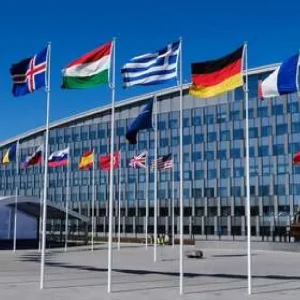
A warrant has been issued for the arrest of the founder of TerraForm Labs, Do Kwon, over the collapse of the Terra ecosystem and the crash of the Terra stablecoin. A financial services expert says this crash could lead to more regulation and greater investment in cryptocurrency from traditional investors.

The collapse of the Terra stablecoin, which was supposed to be pegged to the value of the US Dollar led to a crash in the value of the wider cryptocurrency market earlier this year, causing investors to lose more than $40bn. This led to calls for stricter regulation of the sector.
Stablecoins are supposed to be a more dependable form of cryptocurrency than highly volatile tokens such as Bitcoin, because issuers are supposed to keep an equivalent amount of traditional fiat currency in reserve in case of any problems. The UK government is one of several countries around the world with plans to regulate stablecoins as a payment mechanism, and will do so via the new Financial Services and Markets Bill (FSMB).
Terra’s stablecoin, UST, used an algorithmic method to keep its price stable. It, and sister token, LUNA collapsed in a dramatic implosion in May this year, with both quickly losing 70% of their value.
LUNA had been programmed to have a balancing effect on the price of UST – so if demand for UST rose or fell the algorithm would adjust the supply of LUNA until market forces pushed UST back to $1, keeping it pegged to the US currency.
Its collapse happened over the course of a week in May this year and by the end of the month, $40bn value in Terra disappeared, taking TerraLabs with it.
The collapse of Terra drew the attention of regulators around the world after several crypto lending firms and brokers went bankrupt including Celsius, Three Arrows Capital and Voyager Digital and the price of Bitcoin dropped below $20,000.
The rise and fall of Terra
South Korean prosecutors raided the home of Daniel Shin, co-founder of Terraform Labs as part of the wider investigation in July and put all employees of the company on a no-fly list in South Korea. A class action lawsuit has also been brought against Kwon, Shin and Terraform Labs in California.
The warrant for Kwon’s arrest, along with five other people, was issued by a court in Seoul, South Korea and is in relation to a violation of a capital market rule in the country. He is currently living in Singapore, where Terraform Labs is based. The South Korean court has ordered his return.
In an interview with Coinage last month, Kwon said he was already working on Terra 2.0, hoping that the community is primed to launch interesting things on top of the technology. “Most of Terraform Labs is still intact,” he said. “We lost a lot of executives during the crash, but in terms of the overall headcount, we lost a total of two devs.”
Kwon has been accused of setting up UST and LUNA as a fraud but denies this, explaining that he lost nearly all of his personal net worth in the collapse.
Akeel Qureshi of DeFi platform Hubble Protocol, said there were two groups of people affected by the collapse of Terra Luna and passions are running high. “The first are those directly financially affected, who feel a line has been crossed and want accountability,” he says, adding that the second group are those worried it could be an unwelcome turning point for cryptocurrencies generally.
Terra’s demise brings greater scrutiny from regulators
The fallout of the collapse of UST and LUNA is expected to be much greater regulation from governments and bodies and much more scrutiny. “For this group, the arrest of Do Kwon could set a precedent for future actions that put crypto on a precarious path forward,” Qureshi says.
“Now that this particular domino has fallen, it will be interesting to see what this could mean for the founders of other failed, billion-dollar crypto projects. This could set the tone going forward – not only on a project level, but also across crypto communities. Many may consider this an ideological wake-up call for the entire industry.”
Ben Reeve, partner at financial services practice Oliver Wyman, told Tech Monitor the explosive growth of cryptocurrencies has drawn the attention of regulators, who will be forced to introduce “shock absorbers” to prevent losses on the scale of Terra from happening again.
“To begin, regulations will introduce shock absorbers, improve management quality and attention to risk management,” he explained, which would likely accelerate growth and lead to an influx of capital which will transform the cryptocurrency and DeFi landscape.
“The value to customers is still playing out, and we expect continued investment in the space, both from traditional players and crypto natives,” Reeve adds. “In contrast to past crypto winters, there’s a significant amount of infrastructure that’s been built and many crypto-natives have accumulated healthy funds to last through the winter and continue innovating. While there might still be a slowdown, this could also be an opportunity for traditional finance players to catch up.”






